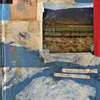 21 year old Olafur Arnalds wrote some of this debut when he was 15. His controlled pieces for piano, strings, and occasional electronics will have fans of Max Richter and Johann Johannsson as happy as dreaming dogs having their bellies tickled.
21 year old Olafur Arnalds wrote some of this debut when he was 15. His controlled pieces for piano, strings, and occasional electronics will have fans of Max Richter and Johann Johannsson as happy as dreaming dogs having their bellies tickled.
Arnalds is from Iceland and the stereotypical reaction might be to suggest his work is clean, cool and somehow emotionally detached. In interviews about his creativity, though, he has largely played down the influence of native landscape, preferring instead to speak of the effects of interactions with real people and of life in his hometown. Certainly Eulogy for Evolution seems a structured reflection of a passage of time such as that of a human lifespan and Arnalds’ music engages emotions immediately and does not let them go. He achieves this by sound alone as the titles of tracks are depicted by numbers rather than through the use of phrases or names. These numbers apparently allude to the timing of imaginary snapshots throughout the album. Hence “3326” refers to a possible picture of the scene at 33 minutes 26 seconds. Opener “0040” features crystal piano notes framed and seemingly held in the air by the plainest of string arrangements. “0048/0729” is an exercise in delay and restraint with added atmospherics and (perhaps) accordion, with quite epic results.
Parts of “1440” are almost too lush for my tastes but stop just about shy of full-on sentimentality. I also like the fake ending on this piece and the ending which is a repetition of just a few notes. The important thing is: they are the right notes. Calling your record Eulogy for Evolution shows a certain confidence but Arnalds has the talent to match and critics have murmured like contented lambs suckling on their mother’s milk. While the rules of composition were ripped up decades ago it’s a trifle hard not to feel something approaching negativity when someone so young combines melancholy and optimism with so little fuss: almost as if he should have to do a longer apprenticeship if only to acknowledge that evolution takes time. No matter, Arnalds has studied Arvo Part and has been chosen to tour with Sigur Ros later this summer so his gravitation toward sparse impressionism is probably a natural path.
In any event his debut sounds full of the reverence and awe normally reserved for God, or at least George Best or Sir Vivian Richards at the absolute peak of their powers. As exquisite as the first few tracks are, by “1953” I was thinking that evolution (in alphabetical terms) would only be progressing from about A to H. However, on the gorgeous but more dramatic and nuanced “3055” a dynamic of change is writ in fuzzed electronics, speedy piano and booming percussion. “3326,” the shortest piece on the album, adds to the variety with a quasi-violent rubbing of strings evoking the brief passion of Jacqueline du Pre: chopped down before she was barely a woman.
I once upset the host of a party by changing the music after what was starting to seem like 48 hours of lute music. Unbeknownst to me, she had set up a series of tapes to gradually delight the ears of her guests with a timeline of sound encompassing early music right through to (what was then the happening sound of) Eno and Byrne! Let me offer belated apologies to the host, Melanie. In my defense, party goers were impatient and, as with evolution itself, unable to predict when, or if, swift and radical changes would ever occur. Olafur Arnalds has not released an album encompassing the entire history of Western music, but Eulogy for Evolution will reward the patient listener.
samples:
Read More

